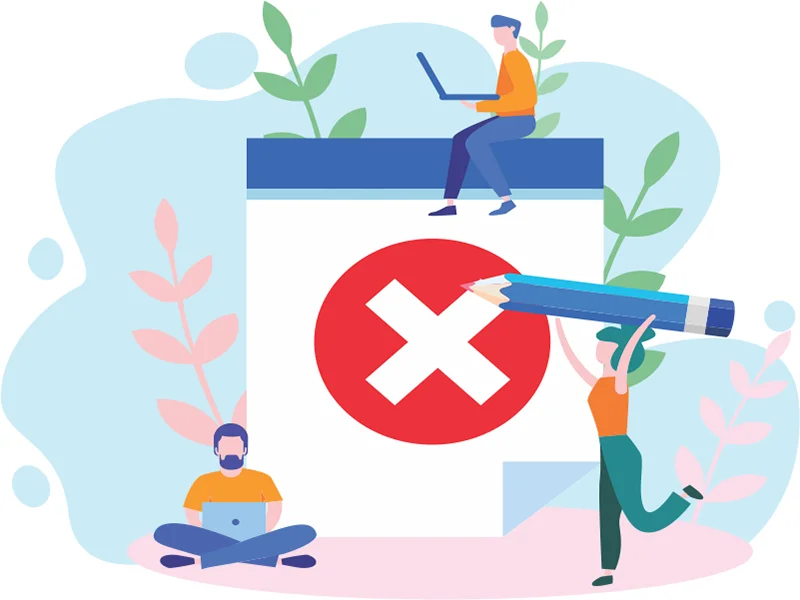
Shares that are offered as part of an Initial Public Offering (IPO) but are not purchased or subscribed before the official release date form part of unsubscribed capital. This is often an indication of very little to no interest by investors in the security offered as part of an IPO. In case and when the IPO moves forward, investors interested in owning unsubscribed capital or stocks can buy them from the secondary market, in the same way as they would buy any other stock.
Before understanding the concept of unsubscribed capital in detail, let’s learn about share capital.
Share capital is the funds raised by a company by issuing shares to the public. It is the money invested by shareholders in a company. It acts as a long-term source of finance which is provided by shareholders in return for a share of ownership in the company. Here are the different types of share capital:
- Authorised capital
- Issued share capital
- Subscribed share capital
- Called up capital
- Paid up capital
Detailed explanation of unsubscribed capital
The term “unsubscribed” refers to newly issued securities that have not attracted many subscribers or investor interest. These securities are not offered by brokerages before the issue date. If an investor wants to own the newly issued stocks, they can only buy them via the secondary markets just like any other stock. In simple terms, shares that are not bought or subscribed in an Initial Public Offering (IPO) before its announcement are categorised as unsubscribed.
Most IPOs are normally supported by an investment bank in determining the big quality which can help in reaching an optimum number of subscriptions. A very high offering price may cause the shares to remain unsubscribed and the portion of the unsubscribed IPO may further impact the overall share prices.
Understanding unsubscribed securities
An issuing company may be unable to raise its projected capital if the IPO remains unsubscribed to a certain extent. A public offering subscription can be interpreted as an offer to purchase a firm’s stock once it has been published. If investors do not subscribe to a particular public issue via the public offering, it means they are not interested in buying those shares.
If some of the IPO shares remain under-subscribed, the issuing company could recall the shares and decide to reimburse the buyers who may have expressed interest. Alternatively, some investment banks may keep a set of backup buyers or back stop purchasers ready and step in to purchase the unsubscribed shares.
A back stop purchaser is somewhat like insurance, in that the purchaser guarantees to buy some portion of a company’s shares to help in raising the intended amount of capital.
For example, suppose Bank ABC is unable to sell all its shares through the IPO (this is the unsubscribed portion), the back stop purchaser will agree to buy leftover shares. The back stop purchaser, in turn, commands a fee for such an agreement since it will be taking on the risk of purchasing (and thereby reissuing) the company’s securities.
When a portion of an IPO remains unsubscribed, the issuing company will be unable to raise the amount of funds originally sought. Therefore, the issuer may need the help of an underwriter for buying the unsubscribed portion. Once a portion of an IPO remains unsubscribed, the shares may rise or fall as per the interest levels of the open market. These shares can be sold or bought among investors through the country’s stock exchanges.
Companies issue shares to the public for raising capital or for financing their business operations, business expansion, and also for meeting other financial needs. Upon accepting shares offered by a company, an applicant becomes a shareholder in the company. This allows the applicant or investor to get voting rights in the company on matters such as corporate policies.
Growth and strengthening
Startups and young companies may issue shares to investors for raising money to fund expansion plans. Since equity does not require repayment, the overall financial stress on the company can be limited. Also, many companies may issue shares to close out existing debts.
Raising startup capital
New companies often require funding for purposes like infrastructure costs, marketing, business travel, equipment purchase, etc. This can be fulfilled by issuing shares to the public.
Conclusion
Companies issue shares through IPOs to raise capital for various funding requirements and to allow general investors to own shares in the company. While companies may offer a certain portion of its shares for subscription through IPO, some of it may remain unsubscribed for various reasons. This results in unsubscribed capital.
FAQs
IPO or Initial Public Offering is an offer by a company to buy its shares in exchange for capital. This process is regulated by SEBI in India. To buy shares through an IPO, an investor must bid for these shares. In case no shares are allotted due to over subscription, investors can get their money back.
An IPO is a good option for beginners to get exposure to stock investments, as it can prove profitable within a short span of time. The success of the investment depends on tactful and timely investment decision-making by an investor.
Paid-up share capital is the total amount of money received by a company from shareholders towards shares issued. Thus, the capital that is allotted and paid by shareholders is known as paid-up capital.
Shares are known to be the best long-term investments for any investor who is willing to take on higher risks. Investors primarily buy shares in companies to generate wealth through return on their investment. Returns can be from dividend earnings or an increase in share value.
Ordinary shareholders have the right to a company’s residual profits and are entitled to receive dividends if available once the company has paid dividends to preferred shareholders.


























